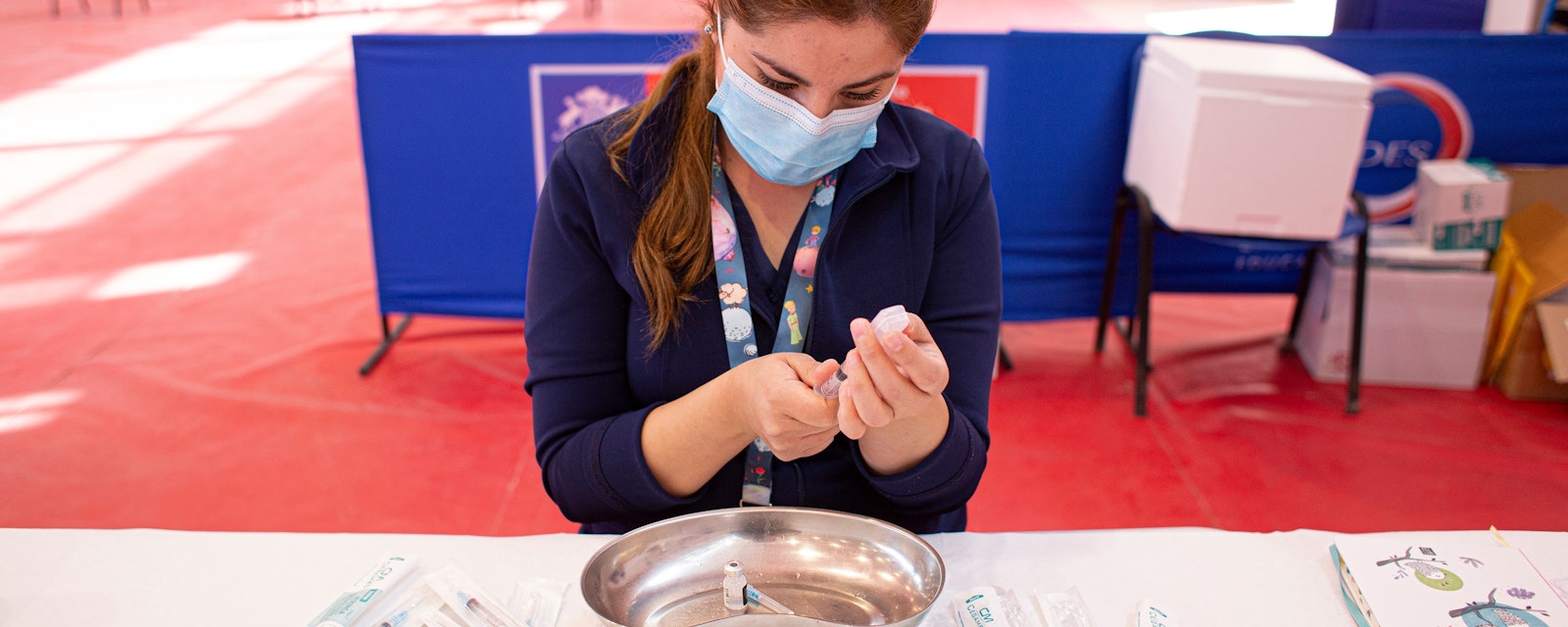Our Covid-19 vaccination table includes updated information on the immunization strategies selected EMs are pursuing and the challenges they face.
Below are some of the latest developments. Please do not hesitate to contact us if you want to discuss any of the countries mentioned in more detail.
Click on 'View PDF' to see the table.
Highlights
Vaccine Rollout
- Chile has started vaccinating children from the age of three, while the country also has the highest booster take-up in the world, with 46.7 booster doses administered per 100 people.
- Colombia succeeded in ramping up its vaccination campaign over November, administering over 10mn doses; an additional 13.6mn doses are expected to arrive over December, including 4.5mn J&J single-dose vaccines for use in remote areas.
- In the Czech Republic, the outgoing government of Andrej Babis is considering compulsory vaccination for senior citizens and some professional groups. However, the incoming administration of Petr Fiala – expected to be approved still in 2021 – is determined to recall mandatory vaccination.
- Hungary is the leading EU country in terms of revaccination, with nearly 29% of the population having received a booster dose. In the second half of December, the country is expected to start vaccinating children aged 5-11 years old.
- Kenya is introducing vaccine mandates – a move criticized as premature given low vaccination rates; as of 21 Dec, access to public spaces will be limited for the unvaccinated.
- The Philippines is making all adults eligible to receive a booster in response to the emergence of the Omicron strain, reversing its earlier policy of a graduated introduction of boosters.
- Poland will start vaccinating children aged 5-11 years old with the Pfizer-BioNTech vaccine in mid-December. Also, the government is introducing compulsory vaccination for teachers, healthcare professionals and uniformed services, who will have to be fully vaccinated by 1 March.
- South Africa is considering vaccine mandates amid the emergence of a fourth, Omicron driven Covid-19 wave.
Vaccine Procurement\
- In Brazil, the Federal Institute Fiocruz requested that the National Health Surveillance Agency produce Astra Zeneca (AZ)'s active pharmaceutical ingredient. If approved, it would be the first vaccine entirely produced in the country.
- In late November, South Africa asked its two vaccine suppliers, Pfizer and J&J, to pause deliveries as the country now has more than 16mn vaccines in store due to slow vaccine uptake.
- In South Korea, SK Bioscience and Novavax have applied for a license for a new vaccine with nearly 90% efficacy. The government has contracted for 10mn doses of the locally-produced vaccine in 2022.
Infections and New Variants
- As of 8 December, 58 countries have reported the Omicron variant, which was first detected in Southern Africa and designated a variant of concern by the WHO on 26 November.
- The Omicron variant has been detected in Brazil, Mexico, Argentina, Peru and Chile, while authorities in Colombia are operating under the assumption that the variant is already in the country.
- Russia’s president Vladimir Putin instructed the government to prepare by 7 December an action plan and allocate additional funds to cope with the Omicron strain. Authorities claim that, if necessary, the Sputnik V vaccine can be modified to prevent against the new strain within 45 days.
Vaccine Diplomacy
- Argentina has donated 1mn AZ vaccine doses to Vietnam, Mozambique, and several small island states in the Caribbean.
- Mexico received 2.1mn AZ doses donated by the US on 2 December, bringing the total number of doses provided by the US to Mexico close to 13mn. In parallel, President Andres Manuel Lopez Obrador (AMLO) continues to find fault with the Covax initiative, recently describing it as a “disgrace” since so many of the world’s poor remain unvaccinated.
- Despite Russia’s diplomatic pressure, the World Health Organization (WHO) appears unlikely to approve Russia’s Sputnik V vaccine at least until early 2022.
- South Africa’s President Cyril Ramaphosa has called for a revocation of travel bans and restrictions targeting Southern Africa in response to the Omicron variant, arguing that such measures are scientifically unsound and discriminatory.
- South Korea has made a second donation of 500,000 AZ doses to the Philippines, as well as 34 logistics trucks. Seoul also pledged a further USD 100mn of aid to Manila for further vaccine purchases, having previously shared vaccines with Vietnam, Thailand, and Iran.
- Six countries – New Zealand, Indonesia, Argentina, Israel, Belize, and Palau – now recognize Taiwan's homegrown Medigen vaccine, which uses recombinant protein technology.
- Vietnam has agreed to increase the production of Russia’s Sputnik V vaccine starting in 2023, after one Vietnamese pharmaceutical firm, Vabiotech, successfully produced its first batch in September; this will involve a USD 60-70mn investment in vaccine production facilities next year.
The views and opinions in these articles are solely of the authors and do not necessarily reflect those of Teneo. They are offered to stimulate thought and discussion and not as legal, financial, accounting, tax or other professional advice or counsel.





